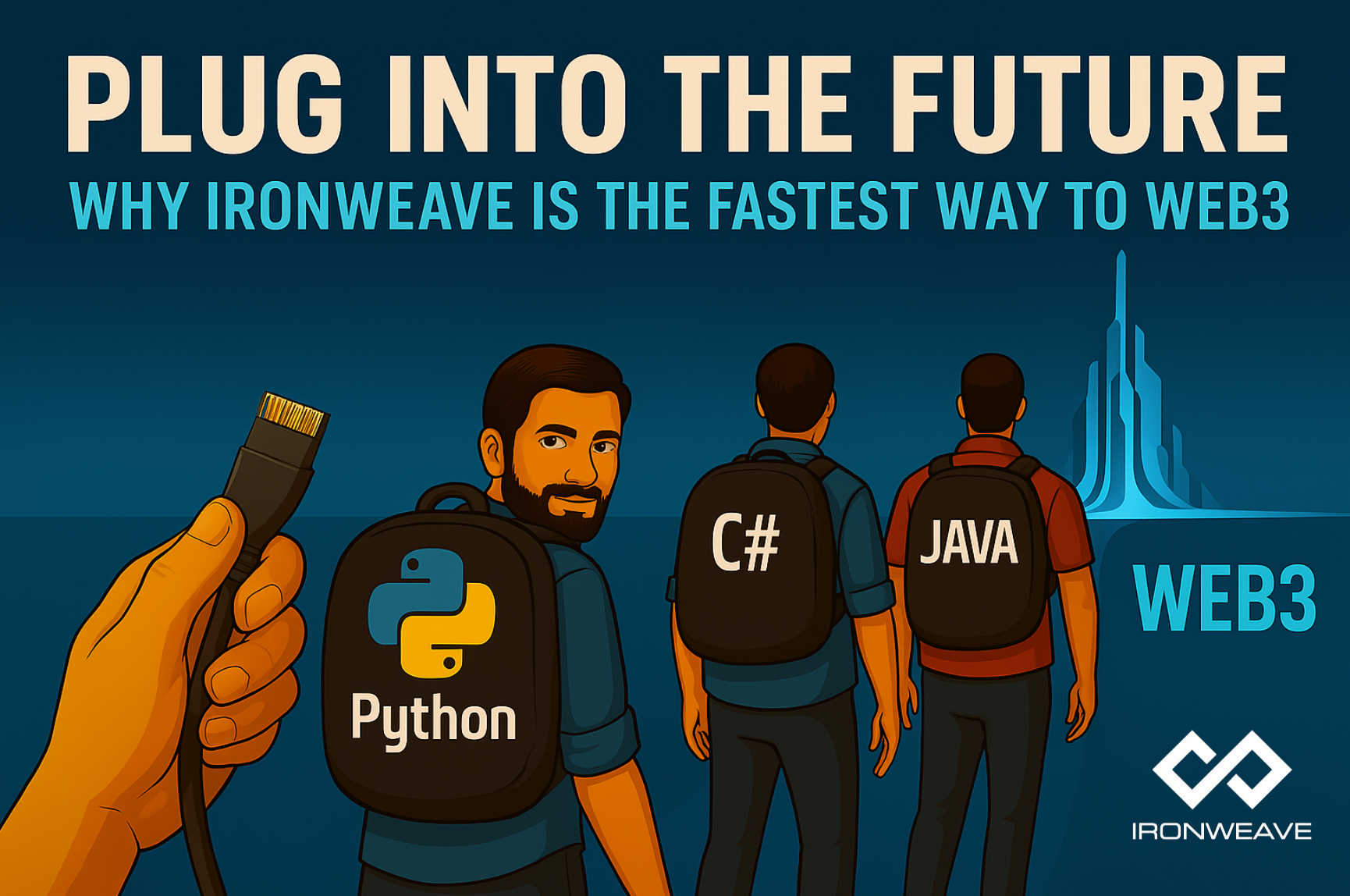Plug Into the Future: Why Existing Programming Languages Make IronWeave the Fastest Way to Web3

In last week’s blog, Build Smarter, Note Harder: Web2 Skills Meet Web3 Power on IronWeave, we looked at how businesses should take advantage of the large pool of Web2 developers to move to Web3 technologies. This week we dig deeper into how IronWeave makes this possible and a practical option for businesses looking to harness the power of Web3. Web3 doesn’t have to mean reinvention. But it does mean acceleration.
You’ve already built systems that work. They handle millions of users. They process payments, manage logistics, serve real-time dashboards and are designed to protect sensitive data. You’ve stress-tested your tech stack through peak traffic, production bugs, and market pivots.
Now imagine taking everything that works—and plugging it into decentralized infrastructure built for significantly better privacy, security, and scale.
That’s what IronWeave makes possible.
With IronWeave’s flexible programming language approach, your team can access the power of Web3 without hiring a Solidity specialist or rewriting your back end in Rust. You don’t have to rip out and replace your stack. You just connect, using programming languages like Python, Java, C# or C++ that your developers already know.
And just like that—you’re running on tamper-resistant, cryptographically secured infrastructure that never goes down and never exposes your data.
The Case for Building on Web3 through IronWeave
Access without the learning curveIronWeave unlocks Web3 for the 28 million Web2 developers who already know how to build secure, scalable apps. With IronWeave, you can use Python, Java, C#, C++, Go, or whatever modern software development framework you already rely on. No Solidity. No retraining. No new IDE.
Resilience by design Centralized platforms break. They get hacked. They go down. IronWeave distributes your data across a decentralized mesh, making your system resistant to outages, tampering, and even geopolitical disruptions—without you needing to manage the complexity.
The Counter Arguments—and Why They Don’t Hold
❌ “APIs are centralized. Isn’t that anti-Web3?” Not on IronWeave. Our APIs interface with decentralized infrastructure that enables data privacy, auditability, and uptime. Unlike traditional Web2 APIs, IronWeave APIs don’t funnel data through central servers—they connect directly to a decentralized data mesh with cryptographic proof of integrity.
❌ “APIs limit composability.” Only if you lock them down. IronWeave’s architecture enables cryptographic data linkage and smart, granular permissioning—without exposing your logic to the same brittle risks of monolithic smart contracts.
You can compose systems, define fine-grained access, and evolve your application logic—all while staying decentralized.
❌ “Real decentralization means building from scratch.” Real decentralization means building systems that actually work when it matters. Starting from scratch slows adoption, excludes talent, and creates brittle, niche ecosystems. The real power move is building hybrid systems that preserve your competitive edge while upgrading your trust layer.
IronWeave doesn’t force you to choose between decentralization and speed. It gives you both.
The Bottom Line
Web3 is too important to be left to niche languages and complex smart contracts. If we want a decentralized future that scales, we need to meet developers where they are—and plug them into the infrastructure of tomorrow.
IronWeave is the gateway to that future.
Build smarter. Build faster. Build on IronWeave.
